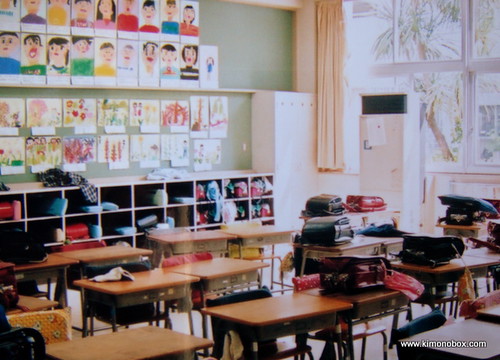Education in Japan (Natalie Collar)
In Japanese society, skills like fitting in with one’s surroundings and thriving within a group are very highly regarded. Rather than the differences, it is the similarities of people that are evaluated, and it is thought that conformity is more important than individuality. If one cannot fit in, one will be isolated within the group or, on the other hand, one will be removed from the group and put into a different one.
While bullying undoubtedly exists around the world, this type of society lends itself to see high percentages of bullying in all levels of schools. According to a recent study by the Ministry of Education, Culture, Sports, Science and Technology (MEXT), in one year, the known bullying incidents in all school levels totaled 188,057, an increase of 2,254 cases from the previous school year. The percentage of schools that were aware of bullying cases was 56.5%.
Severe cases of ijime lead to children dropping out of school, having suicidal thoughts, and acting out at home. The most extreme, yet common, result of bullying is suicide, one that cannot seem to escape mainstream news in Japan.
The national government and bullying specialists have been overwhelmed by the complicated nature of this problem, and the nation is unaware of a clear solution, but parents are encouraged to get involved in solving the issue of bullying at school. Although bullying is regarded by most as a problem of the school, many specialists believe that parents ought to take an active role in communicating with the child’s home room teacher as soon as they become aware of their child being bullied.
While it is incredibly unlikely that any school does not have a single case of bullying, the schools that are able to resolve bullying issues are thought of highly. In fact, it bodes well for the teacher, the school, and the community.
Several local governments are getting involved in promoting awareness of the importance of eradicating ijime for good. After the 2012 bullying incident in Shinagawa that ended in the child’s suicide, the local board of education, teachers and the PTA lobbied for change. The school system, along with the help of students from each school, created original anti-bullying badges and a total of 40,000 badges were made. The students, parents, and teachers wear their badges twice a month to show in an effort to raise awareness and end cases of bullying in their schools.
- 佐藤由美子「なぜ日本はいじめが多いのか? 誰も語らない要因」, The Huffington Post, 2016/02/17. http://www.huffingtonpost.jp/yumiko-sato/the-reason-of-japanese-bully-ijime_b_9190964.html
- 小田公太「いじめ解決のため、学校側に絶対させてはいけない3つのこと」, MAG2NEWS, 2016/09/23. http://www.mag2.com/p/news/220946/2
- 朝日新聞(電子版)「東京)オリジナルバッジでいじめ根絶 品川の区立小中校」, 2016/09/24. http://www.asahi.com/articles/ASJ9P5J6ZJ9PUTIL03J.html

0 件のコメント:
コメントを投稿